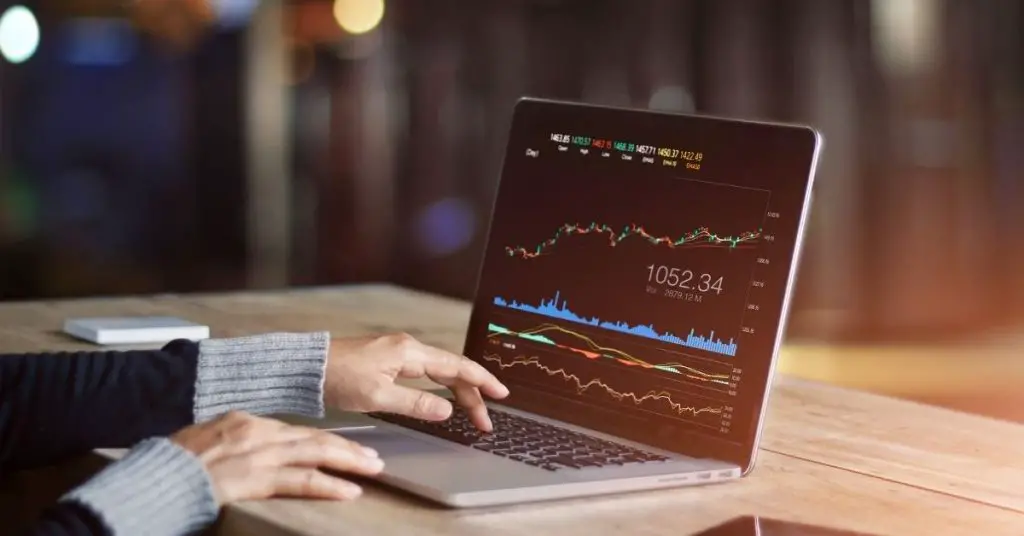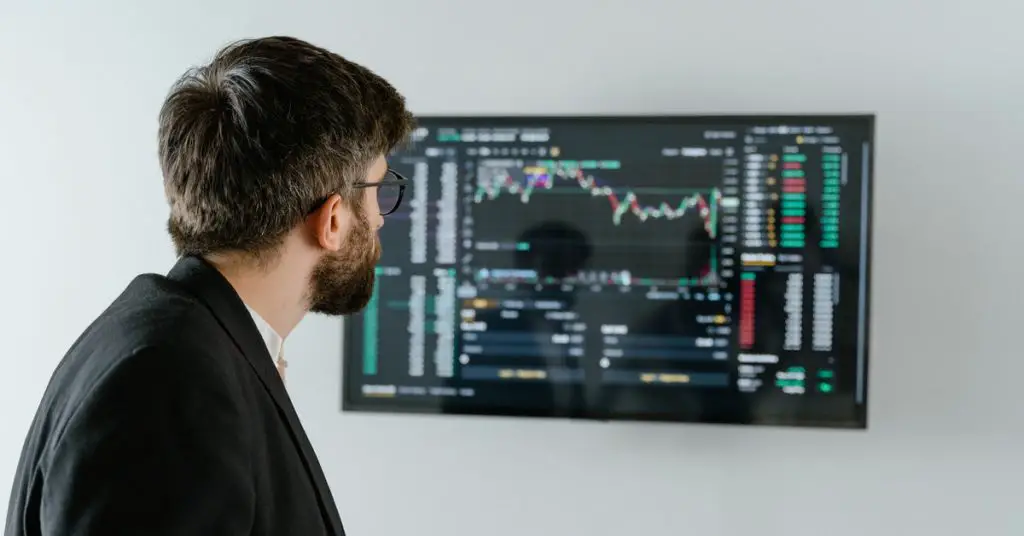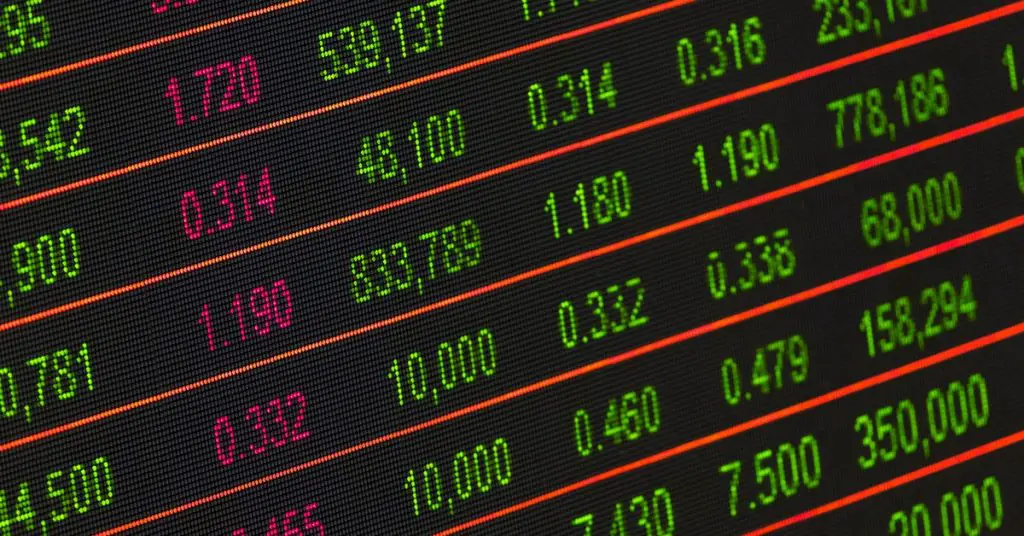Disclaimer: We sometimes use affiliate links in our content. For more information, visit our Disclaimer Page.
The spot market is a marketplace in which buyers and vendors negotiate the price of items and services. It might seem like a pretty straightforward idea, but the spot market has many facets that we will explore in this article!
What is a Spot Market?
A spot market is a marketplace where goods and services are negotiated between buyers and sellers. It’s called a “spot” market because transactions occur instantaneously, meaning at the present moment.
Businesses frequently use spot markets to buy or sell large quantities of goods. For instance, companies will trade with one another using this type of market to exchange products.
Spot markets are also where commodities, like metals and oil, are bought and sold for immediate delivery instead of items that won’t be ready for shipment for another few months or years (futures contracts). So you buy something in the spot market if you want to make an immediate purchase; it’s not a “buy now, pay later” market.
In some cases, a spot market can also be a general term for any asset that’s bought and sold on the open market as opposed to being traded between companies or within an industry group.
What is a Spot Price?
The price of goods and services in the spot market is known as the spot price. The current market rate for an item may be higher or lower than what it sold for previously because it can change based on supply and demand.
Additionally, the price of commodities in the spot market is determined by supply and demand forces within an industry. For instance, if buyers are willing to purchase oil at a higher price, the spot price will increase.
Why are spot markets important to the economy?

Spot markets are essential to the economy because they allow businesses to manage their cash flows by enabling them to trade assets that they will receive in the future for cash upfront. In some cases, this may create opportunities for new projects and business ventures while simultaneously promoting economic growth.
In the case of foreign exchange, cash market transactions will occur between two parties at a rate that is “spot” or immediately available. In this way, cash markets allow people to buy and sell currencies to facilitate international trade and investment while respecting fluctuations in currency values.
How do you trade on them?
Spot trading is based on an agreement between you and the market. Instead of setting a specific rate, you put a price for when you’re willing to buy or sell products at. This type of agreement can be made privately with another individual or publicly where many people are involved.
While your trade may not happen immediately, setting a specific time and place where the trade will occur or on a particular date can be beneficial. This is called “setting a spot,” and it’s usually done for more significant amounts of money that need to be transacted within a period, so you can’t afford to wait until the market fluctuates.
Spot market transactions
Spot market transactions are most common when it comes to foreign exchange. However, spot market transactions are also used in other cases where people are trading something delivered within the foreseeable future, like grains or metals.
The benefits of trading on spot markets.
Spot trading is beneficial for buyers and sellers because it allows them to meet in the middle. Moreover, this helps eliminate obstacles that may slow down international trade, mainly since many modern countries rely on imports and exports to maintain their economy.
One of the most significant benefits of a spot market is that you can trade almost anything, not just physical goods. For instance, you will use spot markets when buying and selling cryptocurrencies. It’s the most efficient way to execute trades and is usually combined with margin trading.
The drawbacks of trading on spot markets.
Unfortunately, this depends on the market you are trying to trade-in. If you’re looking at spot trading for foreign currency, it’s important to remember that there is still risk involved since markets can be volatile. This can make it difficult to predict your investment and manage your cash flow.
Other pitfalls include limited options when trading with other individuals and since you will be making a trade on the spot, expect to pay taxes on any income you make.
Who uses the spot market?
Anybody who wants to buy or sell specific goods or services has the potential to use a spot market if they find someone willing to buy or sell with them. In some cases, this might be a good idea for a business that wants to expand its supply line of certain items or ensure that it will have enough raw materials at a later point in time.
How can you trade on a spot market?
Now that we have an idea of what the spot market is let’s look at how it can be used. The first thing to remember is that this depends on finding someone that wants to buy or sell certain goods with you. Once this has been established, there are several different ways to proceed.
One way is to agree on a meeting point or set a time and place to trade certain goods. This is called setting the “spot” since it’s most commonly used for more significant transactions. Of course, this isn’t an option if you are trying to buy stamps from your neighbor, but it will be helpful for international trade.
Another option is holding an auction and setting a specific price that you’re willing to buy or sell certain goods. This is beneficial if you don’t already know the market value of your items and want to get rid of them quickly.
There are also private trades that usually take place between two individuals who negotiate directly with each other, so they are free to set their rates. This is the most beneficial for small trades with people you trust since no other individuals may raise prices or demand a cut of the profits.
Where can you find spot markets?

Many large companies have begun using spot markets to lower their costs to pass these savings on to their consumers. Some markets only deal in spot prices, so you’ll be more likely to find them there, but this isn’t foolproof since they may not always have the product or service you’re looking for.
If you want more options, several websites online can help connect buyers and sellers on a particular market like Bid and Offer and OpenBazaar, for example. You can also find spot markets at many different stores and shops, especially those that work on small trades with individuals regularly, like craft fairs or local art shows.
The bottom line is that the Internet has helped connect buyers and sellers worldwide and give them more options to get the best price possible. You can find nearly anything you need if you look hard enough online, so get comfortable, do your research, and get ready to have some fun.
Of course, there are other ways to use the Internet to your advantage when it comes to trading, like making remote sales. You can also see what your competitors are doing online to get an edge on the market. The key is finding out what works best for you and putting in the time to create a solid strategy that will help you reach your long-term business goals.
How can you spot market price?
Spot market prices are different from regular market prices since they represent the current value of an item over a specific location and time. This means that it can be more challenging to predict what this figure is, whether you’re trying to sell your items or buy them. You will also need to look for trends to see how it’s changed over time if your goal is to buy or sell over these prices.
Spot Market Alternatives

Futures Market
A future market is a type of financial market where people or companies can buy and sell goods in the future at a price they agree upon today. It’s called the “future” market because transactions occur in the future when delivery of goods occurs, instead of buying and selling in the present moment like you would with a spot market.
The futures market is used in a diverse range of industries. For instance, coffee farmers might trade their goods using this type of market when they’re harvest and roast their next round of coffee beans in a few months. They will agree on a price for how much the farmer needs to be repaid with once that time comes.
Forward Market
A forward market is another type of financial market where people buy and sell goods for future delivery at a specific price agreed upon today. While the futures market is used for trading standardized contracts, the forward market can vary depending on what’s being traded.
For instance, companies will often use this kind of market to exchange unique items. The forward market can also be used to “fix” the price today for something that will change in value tomorrow, like Eurocurrency deposits (money deposited outside of one’s home country).
Physical market
A physical market is a marketplace where items are bought and sold through dealers or other retailers. This type of market is also known as a “spot” market because buyers make immediate purchases when they agree to buy an item.
You typically won’t find extensive inventories of items for sale in this type of market because the owner makes a living selling only one or two units at a time to individual customers.
Regular Market
Regular markets are also known as “organized wholesale markets,” Individuals can buy items in large quantities at low prices. Companies use these markets to purchase the supplies they need for production, while wholesalers stock up on what they need to sell to retailers and individual buyers.
Foreign Exchange Market
The foreign exchange market (also called forex, fx, or currency market) is the decentralized global market for the trading of currencies. It includes all aspects of buying, selling, and exchanging currencies at current or determined prices. It has been around since the early 1970s but started taking off in the 1980s when computer technology became widely available to financial institutions.
Today it’s the largest financial market globally, with an average traded value of around $1.9 trillion per day. Foreign exchange traders range from large multinational corporations to tiny individual investors, who buy and sell currencies for their investments.
Its structure comprises banks, companies, institutional investors, forex brokers, and retail traders like you and me I. Banks are the most significant participants in foreign exchange markets, which is why it can sometimes seem like they control the market (although that’s entirely false).
Foreign Exchange Market Transactions occur when one currency is converted into another currency. For exaSo, fore, if someone had $5,000 to purchase Euros today but wanted to wait for the cash to come through in a month, they could buy that cash with another currency (like US dollars) and then purchase Euros at that time.
Spot market vs. Other popular markets

Spot market vs. regular market
The spot market is a marketplace where the price of goods and services is negotiated between buyers and sellers, or more simply when you agree to buy and sell with another person at a specific time and place.
On the other hand, the regular market is where companies purchase items in large quantities at low prices. It’s also known as “organized wholesale markets,” where individuals can buy things in large amounts at low prices.
Spot Market vs. Futures Markets
Futures markets are financial markets where people buy and sell goods for future delivery at a specific price agreed upon today. The futures market is used for trading standardized contracts, while the forward market can vary depending on what’s being traded.
The futures market is another type of financial market where people buy and sell goods for future delivery at a specific price agreed upon today.
The spot market is a marketplace where the price of goods and services are negotiated between buyers and sellers, or more simply put when you agree to buy and sell with another person at a specific time and place.
What over-the-counter marketplace?
There are several over-the-counter marketplaces that you can use to buy or sell your items. Many are local, so you may not reach as many customers, but it might also mean less competition and lower prices. Below are the most common types of over the counter marketplace:
Barter System
The first is a barter system, which means that services and goods are traded directly between two parties with no money involved. Another term for this is “barter economy,” but they are not the same even though they have several similarities.
This system is usually only used by individuals who are part of an online community or are friends. They are also becoming less popular as time goes on since many prefer to use government currency instead for convenience sake.
Consignment Sales
The second type is the consignment sale, which involves a third-party dealer who handles items’ sales, trade, and distribution. This is where you might find local shops that work with artists or craftspeople to promote their products to consumers.
You can also find several online marketplaces that act as dealers to help connect buyers and sellers to lower costs for everyone involved. Of course, this means that they will charge you a fee, but it’s well worth the money saved in most cases.
Open Market System
The last type is an open market system, which works on a more global scale. This is where you will find that supply and demand decide the prices of goods, similar to how stock markets work with government currencies. The price of goods can fluctuate, so there is more risk involved when you buy or sell since you are not necessarily guaranteed the price that it will go for.
What is the cash market?
The cash market is an over-the-counter marketplace where buyers and sellers can meet face-to-face. This means you won’t have to worry about shipping or mailing items over long distances or through complicated sales channels.
This also means that you’ll be less likely to run into scammers since there’s a sense of urgency over these sales. You are, however, still expected to remain honest over these transactions or run the risk of being labeled as an unreliable seller over time by future customers.
The cash market is excellent for many different types of goods, depending on where you’re selling them over at. This over-the-counter bazaar is also a great way to make some cash off of goods that may be difficult to transport.
You can find cash markets over the Internet, but it’s important to remember that they are still cash transactions, which means that you will need to come prepared with plenty of cash on hand at all times. In addition, you won’t be able to rely on bank transfers or other types of online payment methods, so be sure you have enough on hand before heading in for an over-the-counter sale.
Final thoughts
Spot markets are a great way to meet new people, learn about their cultures, and expand your horizons. Even though over-the-counter marketplaces can be challenging, they are very rewarding once you’ve found the correct type of buyer or seller for your needs.
You may not make as much money as you would using another method, but they can be very rewarding when you find that perfect sale or buyer. Just remember to keep things formal and not let your emotions get in the way when trading with another person since it’s all about business at the end of the day!
Thank you for reading our article on spot market benefits, importance & comparison! If you found this helpful guide, please take a moment to share it with others by clicking the social media buttons shown on this page.
FAQ
What are some examples of exchanges where traders buy and sell stocks?
New York Stock Exchange (NYSE) is an excellent example of how traders can buy and sell stocks. New York Stock Exchange is a spot market where people meet to trade shares, bonds, or stock certificates for a specific price.
What is the forward price?
The forward price is the future-forward or forward-forward price of something. It’s the standard price of goods bought on a particular date but paid for later.
What types of securities can be traded in spot markets?
Stocks, bonds, commodities, and currencies are some of the most popular types of securities that can be traded in spot markets.





